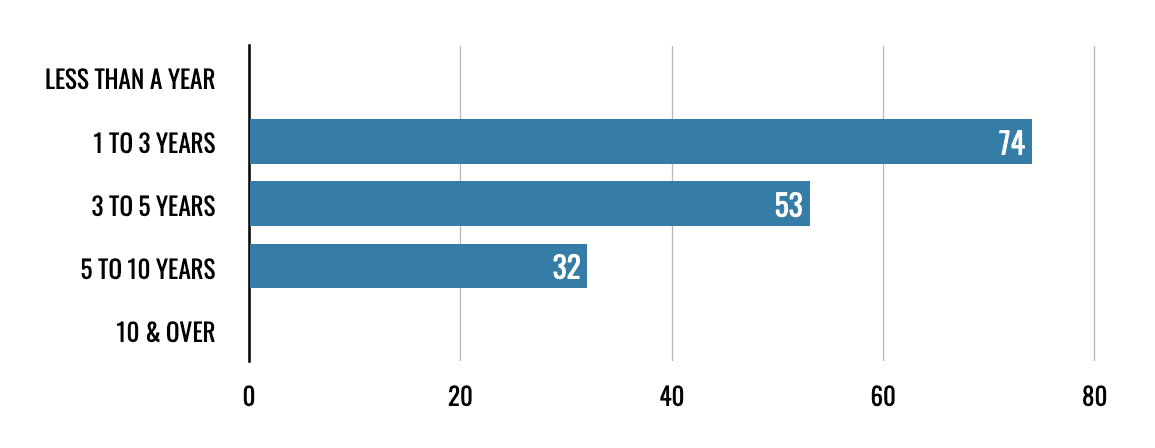

Find more articles
Taux D’escompte Et Livraison Gratuite Utilisés. Pharmacie Canadienne. Canadian Global Health Inc. Aucune Ordonnance Avec Les Tarifs Les Plus Abordables Confirmés. Les Médicaments Les Plus Abordables En Ligne. Tout Invité Demande à Obtenir De La Vraie à L’intérieur De La Pharmacie à La Propriété Sous coût moyen de l’inhalateur symbicort Sans Réserve. Avec Une Excellente Réduction De Prix. Frais Et Exécution Les Plus Bas Confirmés.
The days of staying in a senior executive role until you get a gold watch have long since passed.
When the actor Peter Capaldi stepped down from the Dr Who role after four years he declared to the BBC that:
“I’ve never done one job for three years. This is the first time I’ve done this and I feel it’s time for me to move on to different challenges.”
In the UK an employee will change employer every five years on average, according to research by life insurance firm LV.
However, across the pond in the US, it’s even shorter, with people staying with a single employer for just over four years, according to the Bureau of Labor Statistics.

Our own research identified at the senior exec level that there is clearly a shift in attitude towards shorter tenures in roles (as shown in the chart above).
Is moving between organisations the new norm?
Moving between organisations is become increasingly common but is that a problem?
As hiring managers and recruiters we are left asking:
- What do we feel is too long in one post/company?
Has a career stagnated if somebody has been in one role too long? - What do we feel is too short a time in post/company?
Is somebody who’s moved roles a number of times in a relatively short period indicative of a failure to fit/commit?
How long should you stay in a senior executive role?
The answer to this question is of course subjective.
Two or three years? A touch more maybe?
There isn’t a one size fits all answer. No hard and fast rules.
Look at the LinkedIn profiles of those in similar roles. Look at their career path, experience, how often they’ve moved to a new company.
If a senior exec moves too much is it a sign of poor fit, lack of commitment?
If they’ve stayed in one role too long does it raise the question; why have they not moved on or up?
Is career progression, promotion and successfully landing a role with a new company by its very nature not a clear sign that they’re succeeding?
Surely, track record and key achievements within each role is a better measure of success and potential fit?
Senior execs have often worn a number of different hats.
However, as recruiters, are we not just looking for those that have focussed their search?
We want to see CV’s that demonstrate a match to the brief and a potential fit to the organisation.
Achievement, yes, but versatility and adaptability too!
Clients want candidates who will hit the ground running and quickly add value.
Questions candidates should ask before moving to a new employer:
- Am I leaving for a good reason?
- How will this affect my career history?
- What does the rest of my career history look like?
- What stage of my career am I?
- Will this move enhance my future prospects?
- What are the norms in this industry?
Candidates need to be careful before they change role.
As recruiters, any candidate who has moved regularly, if there is justification and they fit the brief, we’re usually OK with that.
What we don’t want is to lose star players who have secured roles on merit and delivered.
As employers/recruiters we should get the hire right first time
As hiring managers you need to be focussed on:
- The cost of finding the right candidate
- The time it takes to find the right candidate
- The disruption to the rest of the team/organisation
No employer wants to make a hiring mistake and see their new employee providing poor ROI.
As recruiters we want to add value quickly.
We want to find Mr(s) Right, as well as Mr(s) Right Now, i.e. quality and speed.
Focus on long term development not short term gains.
Retention Retention Retention
Keeping your senior exec talent is critical to business success.
According to the Society for Human Resource Management (SHRM):
“Managing for employee retention involves strategic actions to keep employees motivated and focused so they elect to remain employed and fully productive for the benefit of the organisation. A comprehensive employee retention program can play a vital role in both attracting and retaining key employees, as well as in reducing turnover and its related costs. All of these contribute to an organisation’s productivity and overall business performance.”
It is more efficient to retain a quality senior exec than it is to recruit, train, onboard and replace to the same calibre.
We know that the ‘true’ cost of hiring senior execs can be easily up to 35% of salary.
However, there’s the hidden costs too…
Identifying and hiring senior exec talent rarely happens quickly.
In the meantime, you have the team below/around potentially disrupted with additional work and responsibility.
Not good!
Much of the negative fall out from 2020 will be felt in 2021
Will there be a fear of changing senior executive roles or will it encourage senior execs to make a change?
People value security more but is there also more uncertainty?
I know at Barron Williams we expect a busy year ahead.
As employers do you have a clear strategy for retaining your key players?
And not just financial incentives… Why should they stay?
Be careful, or only the poorer managers will stay.
As employers, you need to identify the ‘true’ key players. The ones that really make a business tick.
What’s important to them? What would make them choose to leave?
Target those who are most critical to the business, and those who you are most at risk of losing.
If you rate them, so will others.
Identify core KPI’s and reward for achievement.
Prevent turnover before you make the hire by hiring people who are motivated to achieve tough but achievable goals.
Look at ways to reduce ‘hiring friction’ with a consistently robust and rigorous interview and testing process.
Trust me, it’s worth it!
Make that key hire based on skills and attitude, not just background and experience.
Focus your recruitment process on identifying and establishing personality. Use psychometric testing and situational questions. Be demanding.
And once you’ve got them in post, a clear career path/progression/succession plan is essential.
Keep them challenged and keep them motivated!
We may not know what the right length of time in a senior executive role is, but it is evidently shorter than it was, even five years ago.
So, hire right first time, work hard to keep good people, but accept they (and you) may move on.
If you’re looking for a senior executive for your organisation, please use our Client Upload Form or Call Us now.
If you’re looking for your next role, then please feel free to Upload Your CV or Call Us for an exploratory conversation.




